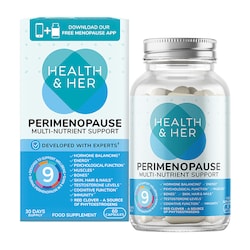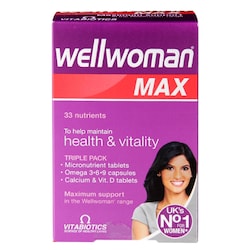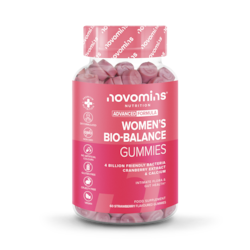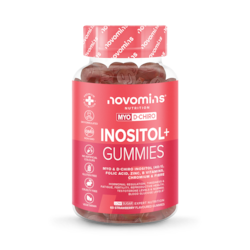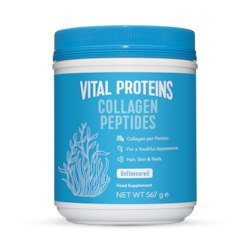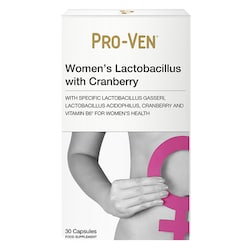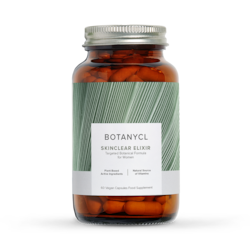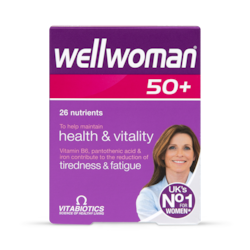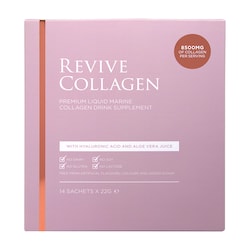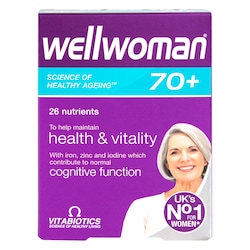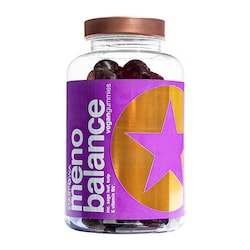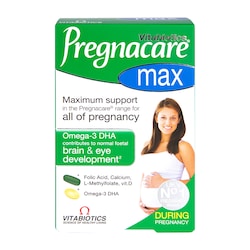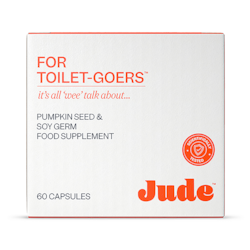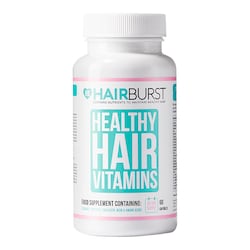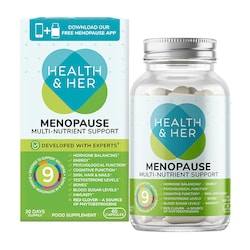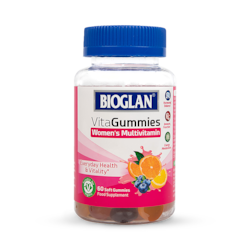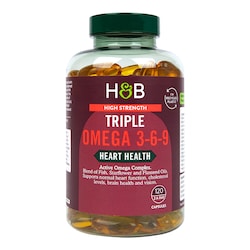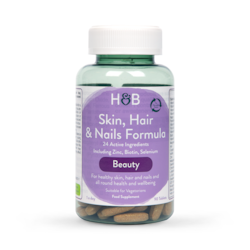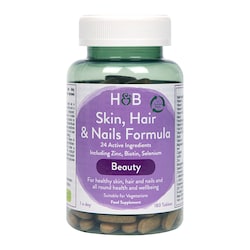20% off £30
Code:QUICK
An intro to PCOS: Symptoms, types & lifestyle tips

Polycystic ovary syndrome (PCOS) is thought to affect 1 in 10 women in the UK. Here, you'll learn all about its symptoms, causes, and tips on how to live with it.
Summary
1 What are polycystic ovaries?
The term ‘polycystic ovaries’ refers to the large number of follicles (fluid-filled sacs in which eggs develop) that form on the ovaries. With PCOS...
2Symptoms and side effects of PCOS
Some of the most common symptoms of PCOS include: irregular periods, difficulty getting pregnant due to irregular ovulation, weight gain, acne...
3Tips for living with PCOS
To help manage your PCOS, the most important areas to look at are exercise, nutrition, supplements, and lifestyle choices...
Estimated to affect up to one in ten women in the UK, PCOS, or polycystic ovary syndrome, is one of the most common reproductive health conditions.1
Whether you’ve already been diagnosed with polycystic ovary syndrome (PCOS) or are just researching the condition, we’ve compiled this guide to help you learn everything you need to know – from what the condition is to its various symptoms and causes.
What is PCOS?
PCOS is characterised by three main things:2,3
- hyperandrogenism (increased testosterone levels which cause symptoms like acne and excessive hair growth)
- ovulation disorder (where ovulation is irregular or you might not have periods)
- the appearance of polycystic ovaries (on an ultrasound)
However, in many, but not all, women, the condition can also be caused due to insulin resistance and what’s known as ‘hyperinsulinaemia’, which is higher levels of insulin in the blood than what's considered healthy.4,5
Over time, studies have shown that higher insulin levels can not only reduce the amount of sex hormone globulin (SHBG) produced in the liver but also increase the level of androgen production, leading to the potential onset of PCOS.4,5

What are polycystic ovaries?
The term ‘polycystic ovaries’ refers to the large number of follicles (fluid-filled sacs in which eggs develop) that form on the ovaries. With PCOS, these sacs are often unable to release an egg, which means that ovulation won’t take place.1
However, despite its name, you don’t actually have cysts if you have PCOS.1
What are the different types of PCOS?
Since PCOS can cause different experiences for different people, it probably won’t come as any surprise to learn that there are different types of PCOS. You might have heard of these types of PCOS:
- high androgen PCOS: this type is associated with high androgen levels (male hormones), resulting in symptoms like acne and hair growth6
- insulin-resistant PCOS: people with PCOS are often insulin resistant, which means their bodies can make insulin but can’t use it effectively, increasing their risk for type 2 diabetes7
- inflammatory PCOS: sometimes our immune system reacts as if there’s a threat – even when there isn’t – which can lead to inflammation. This inflammation can damage our cells, raise androgen levels, and affect ovulation8,9
- post-pill PCOS: coming off the contraceptive pill can sometimes cause PCOS-like symptoms, like irregular periods and a rise in androgen levels.10,11 However, these symptoms don’t necessarily mean you have PCOS – it's not unusual for your hormones and cycles to take some time to settle after coming off hormonal contraception10,11
What causes PCOS?
Unfortunately, scientists still don’t really know what causes PCOS. But, because PCOS can tend to run in families, many believe that there’s a genetic component to the condition in some people.12, 13
Recent research conducted in animals suggests that PCOS may be caused by genetic or chemical changes that occur in the womb.12
However, it’s most likely that PCOS is the result of a combination of causes, including genes and environmental factors.4
Symptoms and side effects of PCOS
As PCOS is classed as a ‘syndrome’, experiencing multiple symptoms is needed for a diagnosis.14,15 Generally speaking, these symptoms tend to become apparent when you’re in your 20s.
Some of the most common symptoms of PCOS include:3, 16
- irregular periods or no periods
- difficulty getting pregnant due to irregular ovulation or lack of ovulation
- excessive hair growth (hirsutism) – typically on the face, chest, back or buttocks
- weight gain
- thinning hair and hair loss from the head
- oily skin or acne
- depression/anxiety
- obstructive sleep apnea
Remember though, everyone’s experience of PCOS is different. Since these symptoms can indicate other conditions as well, it’s important to arrange a chat with your GP if you start to experience any of them.

How is PCOS diagnosed?
To be diagnosed with PCOS, you need to have at least two of the following features, as mentioned previously:1,3
- irregular periods: this occurs due to either not ovulating at all or infrequently
- excess androgen: this can cause symptoms such as excess facial or body hair
- polycystic ovaries: this is when your ovaries become enlarged due to the continuous development of follicles
Treating PCOS
Unfortunately, there's no cure for PCOS. However, with a combination of lifestyle changes and medications, your symptoms can be managed more easily.1
Some of the main treatment options for PCOS include:1,17
- weight loss: performing gentle exercises and eating a healthy, balanced diet can help alleviate symptoms
- medicines: these can be used to treat specific symptoms, such as the contraceptive pill for irregular periods and excessive hair growth, and clomifene for fertility problems
- surgery: for fertility problems that don’t respond to medicine, a simple surgical procedure known as laparoscopic ovarian drilling (LOD) may be recommended to destroy the tissue that's producing androgens
Occasionally, metformin may be recommended. More commonly used to treat diabetes, this medication can help regulate hormones by reducing insulin resistance, especially in women at risk of diabetes or heart disease.17
Tips for living with PCOS
There are certain lifestyle changes you can make to try and manage your PCOS.
Generally speaking, the most important areas to look at are exercise, nutrition, supplements, and lifestyle choices. We’ll explain a bit more about these areas and the changes you can make that may positively impact your health.

Exercise
First up, exercise. It goes without saying that moving your body is key to a healthy lifestyle. But it may be especially important for people with PCOS.
Interestingly, performing 150 minutes of exercise per week has been shown to not only have positive effects on ovulation frequency and insulin sensitivity but also possibly improve psychological wellbeing.18
However, moderate exercises, like brisk walking, swimming, yoga, or resistance training may be best for people with PCOS. This is because high-intensity movement can cause a spike in cortisol and adrenaline levels, further increasing your insulin level.19
Nutrition
Another way to potentially help manage PCOS is through your diet. Try to opt for three nutritionally dense meals a day that all include a source of high-quality protein, fibre, greens, and healthy fats.20
Following a low glycaemic index (GI) food plan might be helpful – especially as it reduces spikes in glucose levels after meals and balances the underlying insulin resistance associated with the condition.21,22
Looking at foods which have an anti-inflammatory effect can also be particularly beneficial as PCOS is one of a group of inflammatory conditions. Therefore, foods rich in antioxidants can really help, as can switching from black tea to green tea.
Following a Mediterranean diet rich in oily fish, whole grains, and vegetables can not only help maintain your health but it can also reduce your risk of diabetes or heart disease – two conditions that women with PCOS are significantly at increased risk of if they’re overweight or have a pre-existing family history.7,23,24
Studies have also shown that reducing carbohydrate intake and increasing protein can promote PCOS weight loss,20,25 whereas high-fibre diets can help support chronic inflammation, reproductive health, blood sugar management, and gut health.26,27
Eating cruciferous vegetables (including leafy greens, broccoli, cabbage, kale, and bok choy) is also important, as a lot of them contain something called ‘DIM’ (diindolylmethane). Although limited in data, this nutrient is believed to have anti-androgenic and oestrogenic activity, which means it may help to reduce testosterone levels in people with high androgen PCOS.28,29
We’re yet to fully understand the role of nutrition in PCOS, but eating a healthy balanced diet with plenty of wholefoods and vegetables is thought to be beneficial for general health – PCOS or not!

Maintaining a healthy weight
From a weight perspective, keeping your weight in the normal BMI range is crucial to managing and rebalancing the hormonal imbalance.30-32
However, if you find this challenging, get a referral to a dietician and discuss some intermittent fasting techniques with your GP. These can provide an effective way of losing weight and keeping it off, without feeling that you’re on a permanent diet.17
Alternatively, for some healthy meal inspiration, take a look at our recipes to discover a range of balanced options.
Supplements
Certain supplements may be able to help with PCOS. For example, some studies suggest that myo-inositol and folate could help with some types of PCOS, with one study showing that 70% of participants had ‘restored ovulation’.33
Researchers have even found that, when the two are combined, 88% of patients had at least one episode of restored ovulation and 18 of these patients experienced normal menstruation activity during the six month follow-up period.34 The two combined, can therefore be seen just as effective as traditional medication.33,35
However, more research is required on these two supplements as existing research has had limitations such as small sample sizes
Zinc supplements may also be beneficial for people with high androgen PCOS, as some studies have shown that they can have positive effects on hirsutism (excess hair) and alopecia.36 After eight weeks, one study involving 48 women concluded a 29.2% reduction in alopecia in patients with PCOS who supplemented with zinc, as well as a significant reduction in hirsutism.36
For people with inflammatory PCOS, glutathione, N-acetyl cysteine and ALA (alpha lipoic acid) may be able to help as they’ve been found to possess anti-inflammatory properties. However, more studies are needed to clarify this link.37-40
If you don’t eat oily fish regularly, omega-3 supplements have also been shown to reduce insulin resistance, improve cholesterol profiles and, in some studies, even help regulate cycles in women with PCOS, although further research is needed in this area due to limitations in the research.41,42

Lifestyle choices
Smoking is well-known for its ill effects on our health. However, people with PCOS may further benefit from quitting as smoking has been shown to aggravate insulin resistance and increase testosterone levels and fat levels.43,44
Similarly, alcohol consumption can negatively affect hormone and blood sugar regulation, which can subsequently cause high blood sugar levels.45,46 This can be particularly concerning for people with insulin-resistant PCOS.
Finally, if you’re living with PCOS, you should prioritise sleep. This is especially important as sleep loss can raise inflammation, which can exacerbate certain PCOS symptoms.47
The final say
Making the right lifestyle choices is one of the key ways to live with PCOS in a way that benefits your body and wellbeing.
From prioritising nutritious meals to good-quality sleep, we hope this guide has made you feel more informed about what PCOS is and how to manage it.
However, if you’d like more information or think you may have PCOS, it’s important to speak to a doctor to find out which treatments are available to you.
- NHS. Polycystic Ovary Syndrome [Internet]. NHS. [Cited 2024 Feb 10]. Available from: https://www.nhs.uk/conditions/polycystic-ovary-syndrome-pcos/.
- NICE. Polycystic ovary syndrome: What is it? [Internet]. [cited 2024 Mar 5]. Available from: https://cks.nice.org.uk/topics/polycystic-ovary-syndrome/background-information/definition/.
- NHS. Symptoms - Polycystic Ovary Syndrome [Internet]. [Cited 2024 Feb 10]. Available from: https://www.nhs.uk/conditions/polycystic-ovary-syndrome-pcos/symptoms/.
- NICE. Polycystic ovary syndrome: What causes it? [Internet]. [cited 2024 Mar 5]. Available from: https://cks.nice.org.uk/topics/polycystic-ovary-syndrome/background-information/causes/.
- Fraison E., et al. Metformin versus the combined oral contraceptive pill for hirsutism, acne, and menstrual pattern in polycystic ovary syndrome. Cochrane Database of Systematic Reviews. 2020, Issue 8. https://doi.org/10.1002/14651858.CD005552.pub3
- Chappell, N, and Schutt, A. Hyperandrogenemia. Encyclopedia of Reproduction (Second Edition), 2018, pp. 70-76. https://doi.org/10.1016/B978-0-12-801238-3.64518-X .
- CDC. PCOS (Polycystic Ovary Syndrome) and Diabetes. [Internet]. [Cited 2024 April 17]. Available from: https://www.cdc.gov/diabetes/basics/pcos.html .
- Weiss, G., et al. Inflammation in Reproductive Disorders. Reproductive Sciences. 2009;16(2):216–29. Available from: https://doi.org/10.1177/1933719108330087.
- Fox, CW., et al. Inflammatory Stimuli Trigger Increased Androgen Production and Shifts in Gene Expression in Theca-Interstitial Cells. Endocrinology. 2019;160(12):2946–58. Available from: https://www.ncbi.nlm.nih.gov/pmc/articles/PMC6855291/
- NHS. What is the combined pill? [Internet]. [Cited 2024 April 17]. Available from: https://www.nhs.uk/contraception/methods-of-contraception/combined-pill/what-is-it/
- NHS.Side effects and risks of the combined pill [Internet]. [Cited 2024 April 17]. Available from: https://www.nhs.uk/contraception/methods-of-contraception/combined-pill/side-effects/
- NICHD. What causes PCOS? [Internet]. [Cited 2024 Feb 10]. Available from: https://www.nichd.nih.gov/health/topics/pcos/conditioninfo/causes.
- Amato, Paula, and Joe L. Simpson. The Genetics of Polycystic Ovary Syndrome. Best Practice & Research Clinical Obstetrics & Gynaecology. 2004; vol. 18, no. 5, pp. 707-718, https://doi.org/10.1016/j.bpobgyn.2004.05.002
- Calvo, Franz, et al. Diagnoses, Syndromes, and Diseases: A Knowledge Representation Problem. AMIA Annual Symposium Proceedings. 2003; vol 2003, p. 802, https://www.ncbi.nlm.nih.gov/pmc/articles/PMC1480257/
- NIH. syndrome [Internet]. [Cited 2024 April 17]. Available from: https://www.cancer.gov/publications/dictionaries/cancer-terms/def/syndrome
- RCOG. International Evidence-based Guideline for the assessment and management of polycystic ovary syndrome [Internet]. [cited 2024 Mar 5]. Available from: https://www.monash.edu/__data/assets/pdf_file/0003/3379521/Evidence-Based-Guidelines-2023.pdf.
- NHS. Treatment - Treatment - Polycystic ovary syndrome [Internet]. [Cited 2024 Feb 10]. Available from: https://www.nhs.uk/conditions/polycystic-ovary-syndrome-pcos/treatment/.
- Woodward, A., et al. Exercise and Polycystic Ovary Syndrome. Physical Exercise for Human Health. 2020;1228:123–36. Available from: https://doi.org/10.1007/978-981-15-1792-1_8.
- Hill, EE, et al. Exercise and circulating cortisol levels: the intensity threshold effect. Journal of endocrinological investigation. 2008;31(7):587–91. Available from: https://doi.org/10.1007/BF03345606.
- Sørensen, LB, et al. Effects of increased dietary protein-to-carbohydrate ratios in women with polycystic ovary syndrome’ The American journal of clinical nutrition. 2012;95(1):39–48. Available from: https://doi.org/10.3945/ajcn.111.020693.
- Marsh, K., et al. The optimal diet for women with polycystic ovary syndrome? British Journal of Nutrition. 2005; 94, 154–165. DOI: 10.1079/BJN20051475. Available from: https://www.cambridge.org/core/services/aop-cambridge-core/content/view/337D7C84D801B5313C83505E168FD7EA/S0007114505001674a.pdf/the-optimal-diet-for-women-with-polycystic-ovary-syndrome.pdf
- Marsh, K., et al. ‘Effect of a Low Glycemic Index Compared with a Conventional Healthy Diet on Polycystic Ovary Syndrome.’ The American Journal of Clinical Nutrition. 2010; vol. 92, no. 1, pp. 83-92, https://doi.org/10.3945/ajcn.2010.29261
- Çıtar Dazıroğlu, M., Acar Tek, N. ‘The Effect on Inflammation of Adherence to the Mediterranean Diet in Polycystic Ovary Syndrome.’ Curr Nutr Rep. 2023; 12, 191–202. https://doi.org/10.1007/s13668-023-00451-6
- Berni, Thomas R., et al. ‘Women With Polycystic Ovary Syndrome Have an Increased Risk of Major Cardiovascular Events: A Population Study.’ The Journal of Clinical Endocrinology and Metabolism, vol. 106, no. 9, 2021, p. e3369, https://doi.org/10.1210/clinem/dgab392
- BDA. Polycystic Ovary Syndrome (PCOS) and diet [Internet]. [Cited 2024 Feb 10]. Available from: https://www.bda.uk.com/resource/polycystic-ovary-syndrome-pcos-diet.html.
- CDC. Fiber: The Carb That Helps You Manage Diabetes [Internet]. [Cited 2024 Feb 10]. Available from: https://www.cdc.gov/diabetes/library/features/role-of-fiber.html
- Leung, Wing T., et al. ‘Lower Fiber Consumption in Women with Polycystic Ovary Syndrome: A Meta-Analysis of Observational Studies. Nutrients. 2022; vol. 14, no. 24, https://doi.org/10.3390/nu14245285
- Bovee, H., et al. ‘Screening of synthetic and plant-derived compounds for (anti)estrogenic and (anti)androgenic activities.’ Analytical and Bioanalytical Chemistry. 2008;390(4):1111–9. Available from: https://doi.org/10.1007/s00216-007-1772-3.
- Alois, M., and Irene M. E. ‘Hormonal Regulation In Pcos Using Acupuncture And Herbal Supplements: A Case Report And Review Of The Literature.’ Integrative Medicine: A Clinician's Journal. 2019; vol. 18, no. 5, pp. 36-39, https://www.ncbi.nlm.nih.gov/pmc/articles/PMC7219449
- Haase, Christiane L., et al. "Association between Body Mass Index, Weight Loss and the Chance of Pregnancy in Women with Polycystic Ovary Syndrome and Overweight or Obesity: A Retrospective Cohort Study in the UK." Human Reproduction (Oxford, England), vol. 38, no. 3, 2023, pp. 471-481, https://doi.org/10.1093/humrep/deac267
- Khmil M, Khmil S, Marushchak M. ‘Hormone Imbalance in Women with Infertility Caused by Polycystic Ovary Syndrome: Is There a Connection with Body Mass Index?’. Open Access Maced J Med Sci [Internet]. 2020 Jun. 20; 8(B):731-7. Available from: https://oamjms.eu/index.php/mjms/article/view/4569
- Sam, S. ‘Obesity and Polycystic Ovary Syndrome.’ Obesity Management. 2007; vol. 3, no. 2,p. 69, https://doi.org/10.1089/obe.2007.0019 .
- Regidor, P-A., et al. ‘Management of women with PCOS using myo-inositol and folic acid. New clinical data and review of the literature.’ Hormone molecular biology and clinical investigation. 2018;34(2). Available from: https://doi.org/10.1515/hmbci-2017-0067.
- Papaleo, E., et al. ‘Myo-inositol in patients with polycystic ovary syndrome: A novel method for ovulation induction.’ Gynecological Endocrinology. 2007; 23(12), 700–703. https://doi.org/10.1080/09513590701672405
- Ali CO., et al. ‘Different Effects of Myoinositol plus Folic Acid versus Combined Oral Treatment on Androgen Levels in PCOS Women’. International Journal of Endocrinology. 2016; vol. 2016, Article ID 3206872, 8 pages. https://doi.org/10.1155/2016/3206872
- Jamilian, M., et al. ‘Effects of Zinc Supplementation on Endocrine Outcomes in Women with Polycystic Ovary Syndrome: a Randomized, Double-Blind, Placebo-Controlled Trial.’ Biological trace element research. 2016;170(2):271–8. Available from: https://doi.org/10.1007/s12011-015-0480-7.
- Uraz, S., et al. ‘N-acetylcysteine expresses powerful anti-inflammatory and antioxidant activities resulting in complete improvement of acetic acid-induced colitis in rats.’ Scandinavian Journal of Clinical and Laboratory Investigation. 2013;73(1):61–6. Available from: https://doi.org/10.3109/00365513.2012.734859.
- Saboori, S., et al. ‘Effects of alpha-lipoic acid supplementation on C-reactive protein level: A systematic review and meta-analysis of randomized controlled clinical trials.’ Nutrition, Metabolism and Cardiovascular Diseases. 2018;28(8):779–86. Available from: https://doi.org/10.1016/j.numecd.2018.04.003.
- Fruzzetti, F., Capozzi, A., Canu, A., & Lello, S. (2019). Treatment with d-chiro-inositol and alpha lipoic acid in the management of polycystic ovary syndrome. Gynecological Endocrinology. 2019; 35(6), 506–510. https://doi.org/10.1080/09513590.2018.1540573
- Kiani, KA., et al. Dietary Supplements for Polycystic Ovary Syndrome. Journal of Preventive Medicine and Hygiene. 2022; vol. 63, no. 2 Suppl 3, p. E206, https://doi.org/10.15167/2421-4248/jpmh2022.63.2S3.2762
- Mohammadi E, Rafraf M, Farzadi L, Asghari-Jafarabadi M, Sabour S. Effects of omega-3 fatty acids supplementation on serum adiponectin levels and some metabolic risk factors in women with polycystic ovary syndrome. Asia Pac J Clin Nutr. 2012;21(4):511-8. https://pubmed.ncbi.nlm.nih.gov/23017309/
- Melo, V., et al. Omega-3 supplementation in the treatment of polycystic ovary syndrome (PCOS) - a review of clinical trials and cohort. Endocr Regul. 2022;56(1):66-79. doi: 10.2478/enr-2022-0008
- Cupisti, S., et al. Smoking is associated with increased free testosterone and fasting insulin levels in women with polycystic ovary syndrome, resulting in aggravated insulin resistance. Fertility and Sterility. 2010;94(2):673–7. Available from: https://doi.org/10.1016/j.fertnstert.2009.03.062.
- Pau CT, Keefe CC, Welt CK. Cigarette smoking, nicotine levels and increased risk for metabolic syndrome in women with polycystic ovary syndrome. Gynecol Endocrinol. 2013 Jun;29(6):551-5. https://www.ncbi.nlm.nih.gov/pmc/articles/PMC4077900/
- British Nutrition Foundation. Sugar [Internet]. 2023 [cited 2024 April 18]. Available from: https://www.nutrition.org.uk/nutritional-information/sugar/
- Nohara, M., et al. A Menstrual Cycle and Menstrual Pain Problems and Related Risk Factors among Japanese Female Workers. Industrial Health. 2011, 49, 228–234. https://www.jstage.jst.go.jp/article/indhealth/49/2/49_MS1047/_pdf/-char/ja
- Bahman, M., et al. The Importance of Sleep Hygiene in Polycystic Ovary Syndrome from the View of Iranian Traditional Medicine and Modern Medicine. International Journal of Preventive Medicine. 2018;9. Available from: https://doi.org/10.4103/ijpvm.IJPVM_352_16 .


